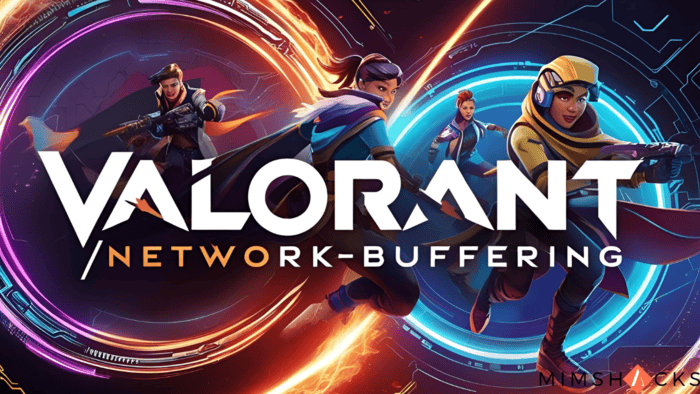Protect Your Gaming Accounts Online | Essential Safety Tips
Online gaming brings a lot of excitement, but it also comes with risks. Cyber threats, including hacking and phishing scams, often target gamers to access personal details or disrupt accounts.
Prioritizing online safety is vital for protecting privacy and enjoying gaming without worries. A few straightforward safety steps can greatly enhance your account security.

Understanding the Risks in Online Gaming
Online gamers face security risks that threaten account safety and personal data. Cybercriminals often target gaming accounts for valuable information, like payment details and in-game items. Awareness of these threats helps gamers take steps to protect themselves from potential attacks.
CISA underscores that these risks include exposure to viruses, worms, and malicious software hidden in game downloads or attachments. Additionally, cybercriminals may exploit security weaknesses in game servers, gaining unauthorized access to personal data. Here are some common risks in online gaming:
Phishing Scams
Phishing scams are a common method used by attackers to gain access to personal information. Scammers often pose as trusted sources, like gaming platforms or support teams, sending fake messages or emails.
These messages typically contain links that lead users to fake websites, where they’re asked to enter sensitive information, such as passwords or account details.
Malware and Viruses
Malware and viruses are malicious software that can infect devices and allow unauthorized access to user accounts. Attackers use these programs to collect data, monitor activities, or even control devices remotely.
Once installed, malware can easily capture login credentials and other sensitive information, putting the user’s account and privacy at risk.
Social Engineering
Social engineering is a tactic where attackers manipulate users into revealing personal details or access information.
This method often involves creating a sense of trust or urgency, prompting users to share sensitive information without realizing the risks. Social engineering is highly effective because it takes advantage of human emotions and social behaviors.
Essential Tips for Securing Your Gaming Accounts
Keeping your gaming accounts safe doesn’t have to be difficult. By following a few straightforward steps, you can protect your information and enjoy peace of mind while gaming. Here’s how to enhance your account security.
1. Use Strong, Unique Passwords
Creating a strong password for each gaming account reduces the risk of unauthorized access. Use a mix of letters, numbers, and symbols, and avoid common words.
For example, try a password like “G@m1nG#SecuR3!” or “Uniqu3_P@ss2024.” Avoid reusing passwords across accounts, as this makes them more vulnerable if one is compromised.
2. Enable Two-Factor Authentication
Two-factor authentication (2FA) provides an extra layer of security by requiring a second form of verification, like a code sent to your phone. This way, even if someone guesses your password, they can’t access your account without the code. Enabling 2FA is a simple step that significantly boosts your account’s security.
- Get a verification code sent to your mobile device
- Use an authentication app for added security
- Confirm each login attempt from a new device

3. Avoid Public Wi-Fi for Gaming
Public Wi-Fi networks are often unsecured, making your devices and data vulnerable to attacks. Avoid using public Wi-Fi when logging into gaming accounts or making in-game purchases. If you need to game on the go, consider using a secure mobile data connection or a VPN for added protection.
Securing your gaming accounts is important, and small actions can make a big impact. Setting strong, unique passwords, enabling two-factor authentication, and steering clear of public Wi-Fi are key measures to keep your accounts safe.
These methods are effective across all gaming platforms, including sweepstakes casinos, where you can enjoy free slots no download needed, and other exciting games. Even with these protections, staying vigilant is key to maintaining full account security.
Recognizing Suspicious Activity and Responding Quickly
Staying alert to unusual activity on your gaming account is essential. If you notice anything suspicious, acting quickly can prevent further issues. Promptly addressing warning signs helps protect your information and keeps your account secure.
Signs of Compromised Accounts
Look for these signs of a compromised account:
- Unexpected login attempts or unfamiliar devices
- Unusual changes to account details, like email or password
- Missing in-game items or unexplained purchases
- Messages or activity you didn’t initiate
Recognizing these signs early allows you to secure your account promptly.
How to Respond to a Security Breach
If your account appears compromised, follow these steps:
- Change your password immediately to a new, strong one.
- Enable two-factor authentication if available.
- Check account details and reset any suspicious changes.
- Contact the gaming platform’s support team to report the issue.
Taking these actions quickly can limit the damage and protect your information.
Keeping an Eye on Linked Accounts
Linked accounts, like social media profiles, can also pose risks if one account is compromised. Keep a watch on any accounts connected to your gaming profile. If one is breached, update all linked account passwords and review settings to secure your information across platforms.
Preventing Future Risks in Online Gaming
Taking preventive measures helps ensure your online gaming experience remains safe. Regularly updating software, avoiding risky apps, and staying informed about security news can help protect your accounts from future threats.
The Consumer Financial Protection Bureau highlights that video gaming marketplaces may present financial and privacy risks, making it crucial for players to stay vigilant against these potential issues.
- Regularly Update Software and Games: Keeping your software and games up-to-date is essential for security. Updates often fix vulnerabilities that hackers could exploit. Set your device and apps to update automatically whenever possible to ensure you’re protected with the latest security patches.
- Be Mindful of Third-Party Apps and Plugins: Third-party apps and plugins can introduce risks, as they may contain malicious code. Download apps only from trusted sources, and avoid unofficial plugins. Unauthorized add-ons can expose your account to unnecessary threats, so it’s best to stick to safe, reliable options.
- Educate Yourself on Online Safety: Staying informed about online safety is key to protecting your accounts. Learn about the latest security practices and keep up with emerging threats. Knowing how to spot and respond to risks can help you make safer choices while gaming online.
Adopting these habits strengthens your defense, helping you enjoy gaming safely and securely.
Conclusion
Securing your gaming accounts is essential for a safe and enjoyable online experience. By applying these safety tips and staying vigilant, you can protect your information and play with peace of mind.
Remember to keep your security practices up-to-date to stay ahead of potential threats, ensuring a safer gaming environment for yourself and others.






